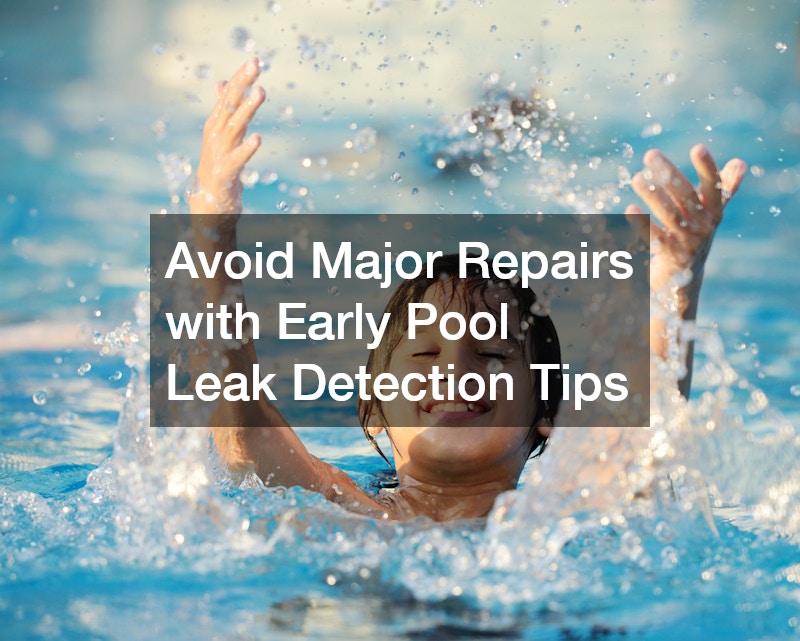Owning a swimming pool brings joy, relaxation and entertainment—especially during Australia’s sweltering summer months. But with that enjoyment comes responsibility, including ongoing maintenance to keep everything running smoothly. One of the most overlooked yet costly issues a pool owner can face is a water leak. A slow, undetected leak can escalate into major structural damage, skyrocketing water bills or irreversible deterioration to pool infrastructure. Thankfully, early pool leak detection can prevent these issues before they become expensive nightmares.
Why Early Detection Matters
Many pool owners assume that a little water loss is normal due to evaporation. While some degree of loss is expected, especially in hot, dry climates, excessive water disappearance could indicate a leak.
The consequences of ignoring it can be substantial. Leaks not only waste thousands of litres of water, but they can also lead to soil erosion around the pool structure, damage to foundations or equipment failure from running dry. The earlier you act, the more likely you are to prevent long-term complications.
Early pool leak awareness empowers homeowners to act fast and avoid extensive and expensive repairs. By spotting leaks early, you can limit structural damage, reduce water waste and prolong the life of your pool.
Common Signs of a Pool Leak
Recognising the signs of a leak early on is the first line of defence. Here are some common indicators:
- Unexplained Water Loss: If your pool loses more than 3 mm per day, especially when not in use, there could be a problem.
- Cracks or Gaps: Check tiles, plaster and concrete surrounds. Cracks often indicate areas where water might be seeping out.
- Soggy Spots Around the Pool: Wet or soft ground near your pool when it hasn’t rained is a red flag.
- Air in the Pump System: If bubbles are visible or the pump struggles to maintain prime, it could be drawing in air through a crack.
- Unbalanced Chemicals: Leaks cause fluctuations in chemical levels, leading to more frequent adjustments than usual.
If you observe any of these signs, don’t delay. Even a minor leak can escalate quickly, affecting not just the pool but surrounding areas like decking, fencing and landscaping.
DIY Leak Testing Methods
While professional help is ideal, you can start with some simple tests at home. One widely used method is the bucket test:
- Fill a bucket with pool water and place it on the pool’s steps, ensuring the water level inside and outside the bucket is equal.
- Turn off the pool pump and mark both levels with a waterproof marker.
- After 24 hours, check the water levels. If the pool water has dropped more than the water in the bucket, there’s likely a leak.
Another method involves food colouring. With the pump off, squeeze a few drops near suspected areas like fittings or steps. If the dye moves towards a crack, you’ve identified a potential leak site.
These techniques are useful for pool leak detection, but they may not always pinpoint the exact location. That’s where professional services come in.
The Role of Professional Leak Detectors
If your DIY methods indicate a leak but you can’t locate it, a professional service is your next step. Experts use pressure testing, acoustic listening devices, thermal imaging and dye testing to detect hidden leaks without digging or causing damage.
Professional pool leak spotting services offer thorough inspections of plumbing, skimmer boxes, return jets and even underneath vinyl liners. The investment in early professional assessment can potentially save thousands in avoided repairs down the track.
Prevention and Maintenance Tips
Preventing leaks starts with regular pool maintenance and inspections. Here are some preventative measures:
- Check for Surface Damage: Inspect your pool’s lining, tiles and surrounding paving for early signs of wear.
- Monitor Water Levels Weekly: Keep a log of water levels to spot irregular patterns.
- Maintain Pool Equipment: Clean and service pumps, filters and valves as per the manufacturer’s guidelines.
- Winterise Properly: For pools not in use during winter, ensure pipes and surfaces are protected from extreme weather conditions.
- Schedule Annual Inspections: Even if everything seems fine, an annual professional check can help catch hidden issues before they become serious.
Don’t Wait—Detect and Protect
Early pool leak detection is a crucial step in responsible pool ownership. It’s not just about saving water, though that’s an important environmental and financial consideration—it’s about safeguarding your pool, your property and your peace of mind.
Leaks won’t fix themselves. The sooner they’re identified and addressed, the less impact they’ll have. By staying vigilant, performing regular checks and knowing when to call in the experts, you can enjoy your pool season after season, without the stress of costly repairs.




